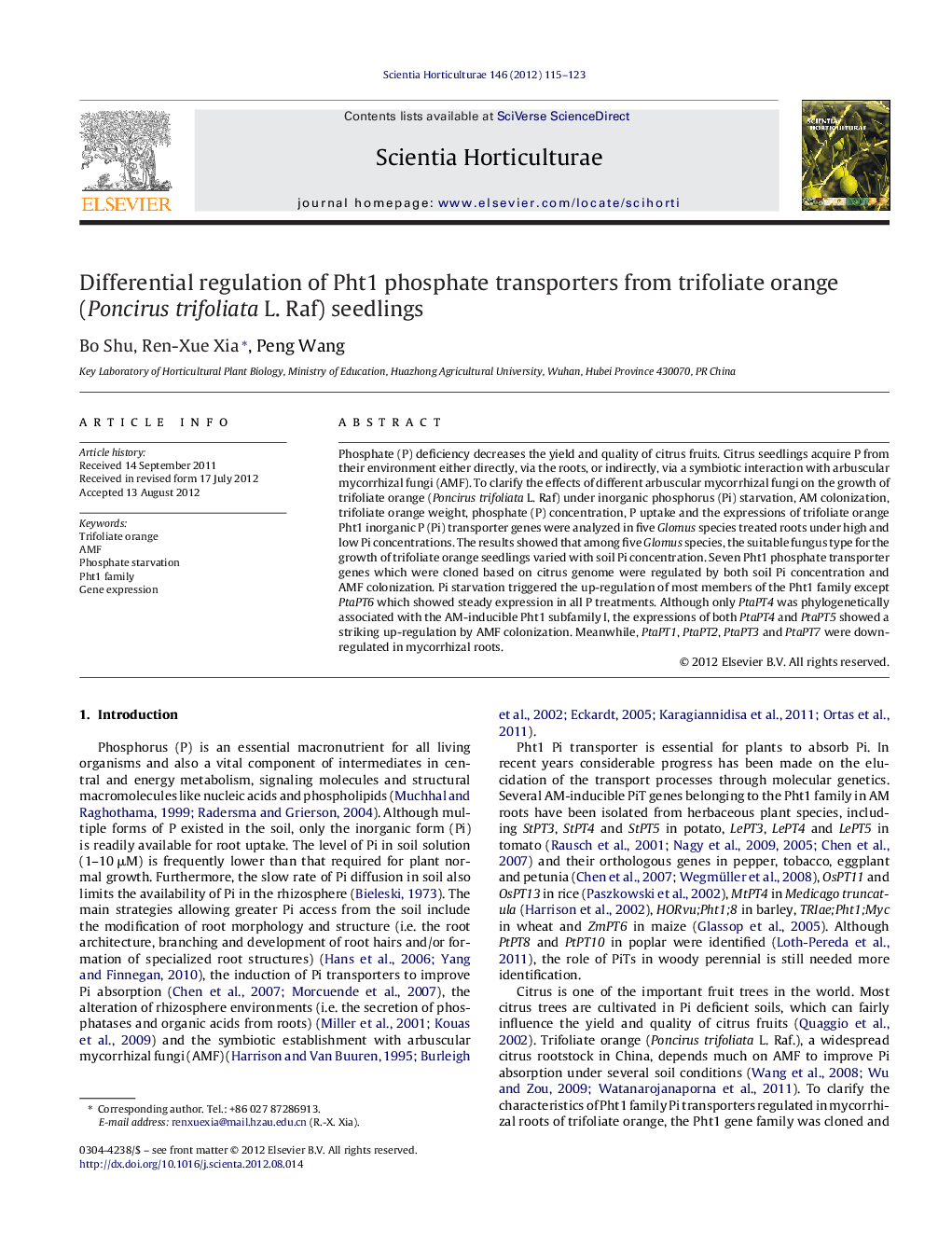| Article ID | Journal | Published Year | Pages | File Type |
|---|---|---|---|---|
| 4567592 | Scientia Horticulturae | 2012 | 9 Pages |
Phosphate (P) deficiency decreases the yield and quality of citrus fruits. Citrus seedlings acquire P from their environment either directly, via the roots, or indirectly, via a symbiotic interaction with arbuscular mycorrhizal fungi (AMF). To clarify the effects of different arbuscular mycorrhizal fungi on the growth of trifoliate orange (Poncirus trifoliata L. Raf) under inorganic phosphorus (Pi) starvation, AM colonization, trifoliate orange weight, phosphate (P) concentration, P uptake and the expressions of trifoliate orange Pht1 inorganic P (Pi) transporter genes were analyzed in five Glomus species treated roots under high and low Pi concentrations. The results showed that among five Glomus species, the suitable fungus type for the growth of trifoliate orange seedlings varied with soil Pi concentration. Seven Pht1 phosphate transporter genes which were cloned based on citrus genome were regulated by both soil Pi concentration and AMF colonization. Pi starvation triggered the up-regulation of most members of the Pht1 family except PtaPT6 which showed steady expression in all P treatments. Although only PtaPT4 was phylogenetically associated with the AM-inducible Pht1 subfamily I, the expressions of both PtaPT4 and PtaPT5 showed a striking up-regulation by AMF colonization. Meanwhile, PtaPT1, PtaPT2, PtaPT3 and PtaPT7 were down-regulated in mycorrhizal roots.
► Seven Pht1 phosphate transporter genes were cloned from trifoliate orange. ► PtaPT4 and PtaPT5 Pi transporters were classified into mycorrhizal Pi uptake pathway. ► PtaPT1, PtaPT2, PtaPT3 and PtaPT7 transporters involved in direct Pi uptake pathway. ► The expressions of PtaPT4 and PtaPT5 were not always consistent with RLA.
